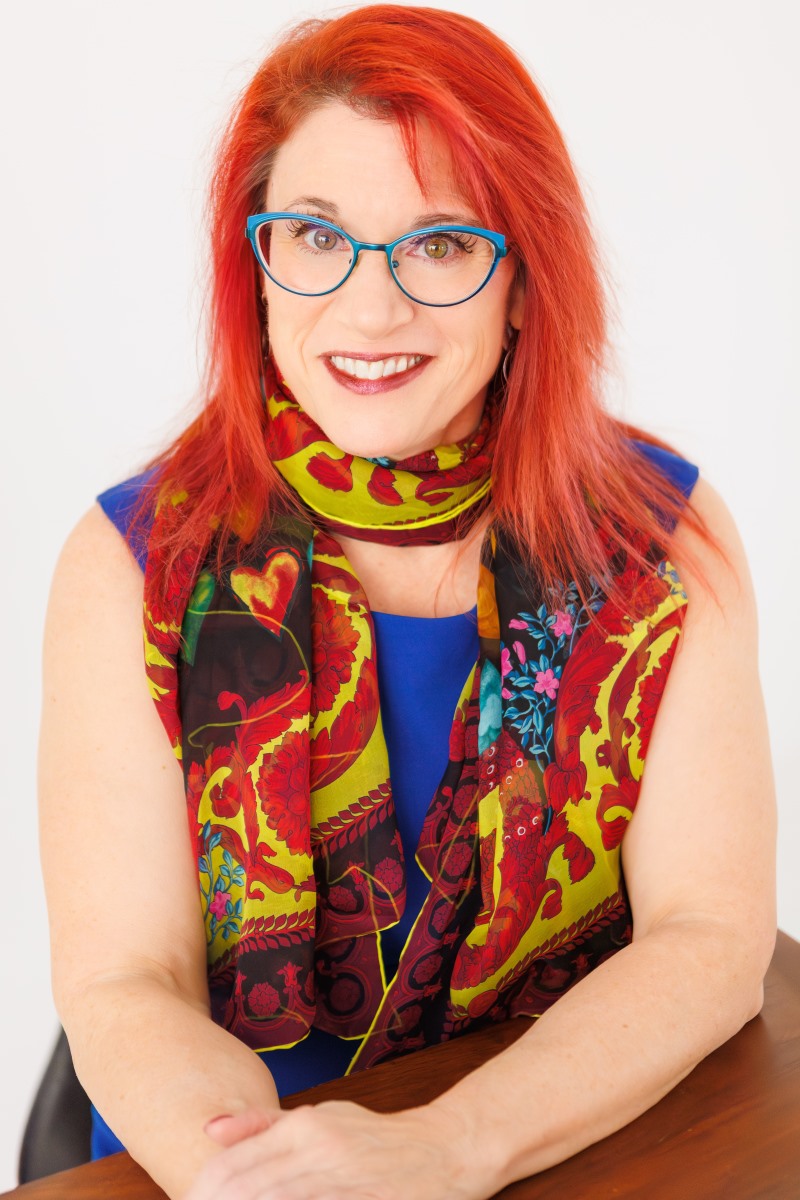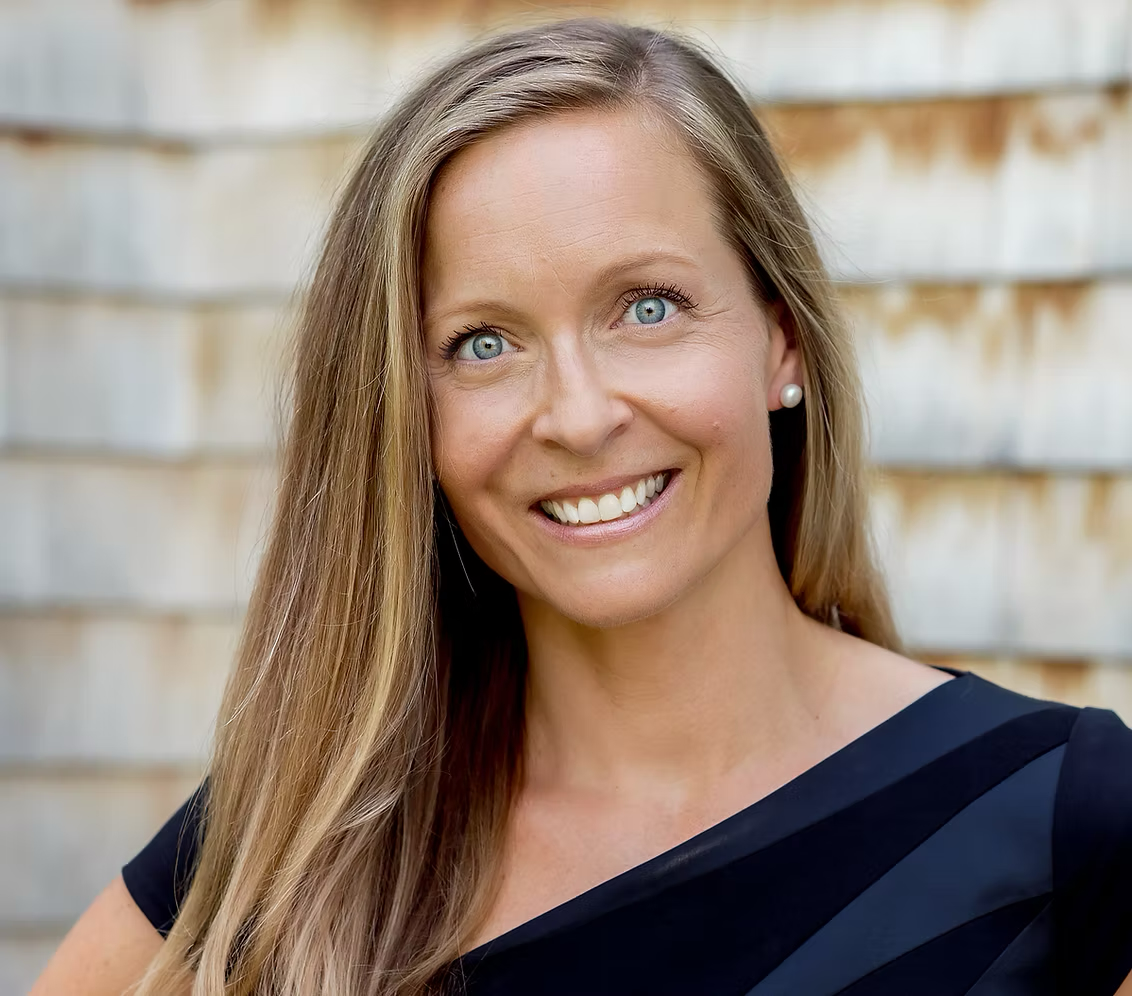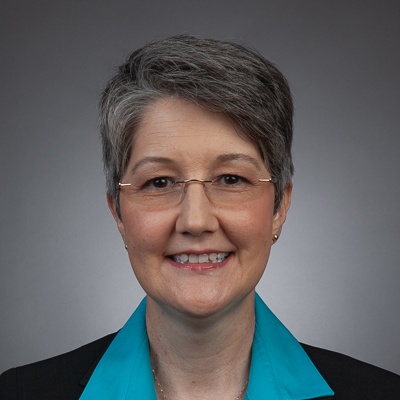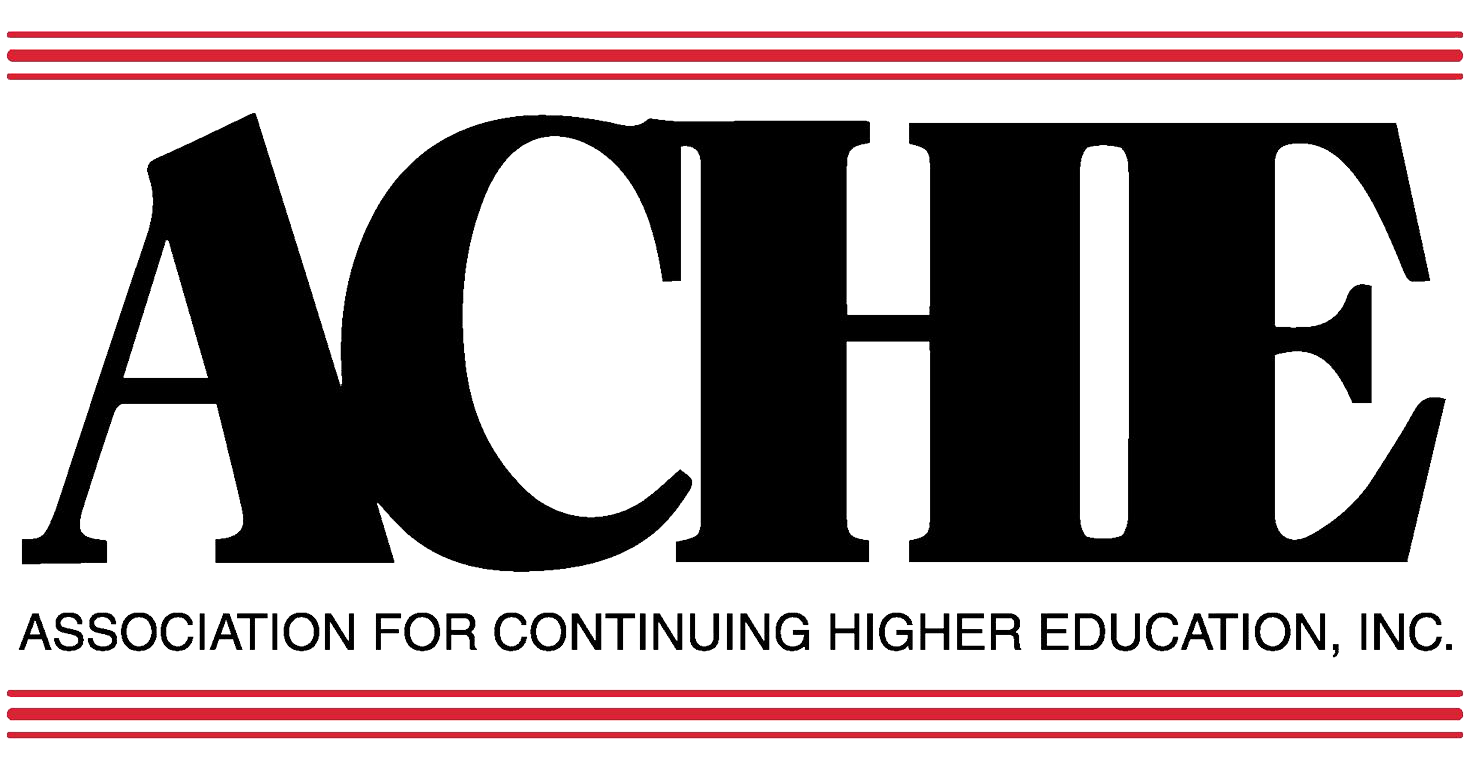2025 Keynote Speakers
We are thrilled to welcome an inspiring lineup of keynote speakers for the 87th Annual ACHE Conference in Milwaukee, each bringing a powerful voice to this year’s theme, “Bridges to Empathy, Empowerment & Innovation.” Opening the conference on Monday, October 13, is Melissa Robinson Winemiller, who will set the tone with a message that sparks connection and purpose. On Tuesday, October 14, Jessica Riddell will guide us through a thought-provoking exploration of innovation in higher education, encouraging bold thinking and transformative action. Closing our conference on Wednesday, October 15, is Julie Shankle, whose uplifting and forward-focused address will leave us motivated to carry what we've learned back to our campuses and communities. Each keynote promises to engage, challenge, and energize us for the work ahead.
Dr. Melissa Robinson-Winemiller

Dr. Melissa Robinson-Winemiller isn’t just talking about leadership: she’s challenging us to do it differently. With over 20 years of cross-industry experience, she helps leaders build emotionally intelligent cultures that don’t just feel better, they perform better. A TEDx speaker, EQ coach, and author of The Empathic Leader, Melissa blends research, real-world insight, and lived experience to make empathy actionable at every level of leadership. She’s on a mission to prove that the so-called “soft” skills are the ones driving the hard results — and the future of leadership depends on them.
Is It Too Late to Become an Empathic Society?
In a world that feels increasingly disconnected, where empathy seems like a lost art, many of us feel like something essential has gone missing and we're left asking: What happened to us?
This interactive keynote is for those who sense the absence of empathy in society but can’t quite name the cause or the cure. Perhaps more importantly, it's for the ones who want to do something about it. Drawing on years of research, personal stories, and real-world evidence, empathy expert, Dr. Melissa Robinson-Winemiller, invites us to explore a simple but radical truth: empathy isn’t something we wait for—it’s something we create.
By the end of this talk, you won’t be wondering if it’s too late. You will feel hopeful, empowered, and equipped to begin.
Dr. Jessica Riddell

An award-winning educator and scholar, she has published on Shakespeare, institutional culture change, inter-institutional collaborations, experiential learning, and inclusive high-impact practices. Her recent book, with collaborators Dr. Lisa Dickson and Dr. Shannon Murray, is called Shakespeare's Guide to Hope, Life, and Learning (University of Toronto Press, 2023) and was nominated for the Gordon Book Prize. Her newest book, Hope Circuits: Rewiring Universities and other Systems for Human Flourishing, was published by McGill-Queen’s University Press in early 2024. Dr. Riddell was awarded the William and Nancy Turner Award for Teaching Excellence (2011-2012) at Bishop’s University, received the 3M National Teaching Fellowship in 2015, was the recipient of a D2L Innovation Award for Teaching and Learning in 2022, and won the inaugural awards from Forces Avenir (Quebec) for Most Engaged Faculty/Staff Member in 2022.
She has received research funding from SSHRC, ECQ (Entente Canada et Quebec), and STLHE (Society of Teaching and Learning in Higher Education), and was awarded funding for innovation from the McConnell Foundation, The Jarislowsky Foundation, CEWIL (Canadian Experiential Work-Integrated Learning), and Business Higher Education Round Table (BHER). Jessica Riddell has a robust leadership portfolio in higher education and serves on several boards, including the Board of Directors for the American Association of Colleges and Universities (AAC&U), the Research Advisory Board for Future Skills Centre, and has served on the 3M National Fellows Council and as VP Canada for International Society for the Scholarship of Teaching and Learning. At Bishop’s, she currently sits on the Board of Governors and at Senate as a Humanities senator.
She engages in public-facing activities and projects as an active contributor to public scholarship through her work as an award-winning columnist for University Affair Magazine, as a keynote speaker at international conferences and speakers series, and a regular guest on national news programs, including the CBC Sunday Edition, CBC Sunday Magazine, CBC Quebec AM, and the Globe and Mail (as a panelist and contributor). In all these endeavours she is dedicated to making the academy more equitable, diverse, and inclusive, creating spaces for emerging scholars and amplifying student voices, decolonizing our institutions, advocating for teaching and learning as scholarly endeavors, and arguing for the relevance of the humanities. Dr. Riddell seeks to build communities and ecosystems animated by a generosity of spirit with a focus on mentorship, leadership, and a commitment to support established and emerging learners and scholars in the pursuit of knowledge creation and sharing.
Hope Circuits: Empathy, Empowerment, and Innovation in Lifelong Learning for Collective Flourishing
As global societies confront rapid technological, social, and ecological change, the role of continuing and lifelong education has never been more vital. This talk, titled “Hope Circuits: Empathy, Empowerment, and Innovation in Lifelong Learning for Collective Flourishing,” invites educational professionals and practitioners to reimagine their work as a pathway to healing, connection, and transformation. This session is rooted in the Hope Circuits framework—a concept that positions lifelong learning as a powerful force for cultivating belonging, purpose, and resilience across diverse learner populations.
At its core, the Hope Circuits Project asserts that learning is not merely transactional or career-focused, but rather deeply human and relational. It offers learners—particularly adults and non-traditional students—the opportunity to reclaim and reshape their stories through education that is empathetic, empowering, and innovative. By understanding education as a tool to strengthen inner resilience and community ties, we can co-create systems that affirm the dignity and agency of every learner.
This presentation explores how continuing education institutions can operationalize hope through intentional design of learning environments that prioritize empathy and purpose. Drawing on interdisciplinary research and practical case studies, we will examine the key components of a “hope circuit”: psychological safety, narrative empowerment, inclusive pedagogy, and flexible pathways. These components work together to help learners connect with their telos—their deeper sense of meaning and contribution—thereby fueling intrinsic motivation and long-term well-being.
Internationally and across the U.S., continuing education has a unique role to play in this work. Whether through workforce development, community engagement, or professional upskilling, lifelong learning is a critical access point for marginalized populations to engage with higher education on their own terms. By centering empathy and learner agency, institutions can bridge the gap between aspiration and access, allowing learners to see themselves not just as recipients of knowledge, but as co-creators of their educational journeys and futures.
In this session, participants will explore how the Hope Circuits framework intersects with the conference themes of empathy, empowerment, and innovation. We will ask: How can we design educational systems that recognize the whole person and foster emotional and intellectual growth? What does it mean to cultivate a culture of hope in a time of uncertainty? And how can continuing education serve as both a sanctuary and a launchpad for learners navigating complex life transitions?
Attendees will leave with actionable strategies and reflective tools for embedding hope circuits in their practice—from course design and learner support to institutional policy and community outreach. By embracing hope as both a pedagogical stance and a structural commitment, continuing education professionals can foster cultures of learning that uplift individuals and build collective futures rooted in justice, imagination, and care.
In a world urgently in need of connection and renewal, the Hope Circuits Project offers a vision for continuing education as a transformative practice—one that invites all learners to thrive, contribute, and flourish across a lifetime.
Julie Shankle

Julie has over 18 years of experience serving remote and adult learners through periods of significant organizational change and innovation. She is currently the Executive Director of Continuing Education at the University of Central Florida, where she is leading a reorganization while overseeing relevant and accessible credit and non-credit programs for up-skilling, re-skilling, micro-credentialing, training, professional advancement, and personal growth.
Prior to UCF, Julie spent over 15 years at Florida Institute of Technology, where she helped launch Florida Tech Online programs early in her tenure. During her final three years there as Vice President of Online and Off-Campus Education, she successfully led the transition of a thriving Applied Behavior Analysis program from non-credit certificates to academic credit offerings while navigating institutional reorganization. These experiences reinforced her belief in values-based leadership as essential for guiding teams through transformation and uncertainty.
Julie is recipient of the Joan Bixby Award, which recognizes those who enhance the climate for women's participation and development on Florida Tech's campus; the Florida Tech Most Valuable Panther Award; and the Florida Tech President's Award. She is a member of Phi Kappa Phi and Omicron Delta Kappa honor societies. Julie earned a Bachelor of Arts from Centre College in Kentucky, where she majored in English and Dramatic Arts, and a Master of Fine Arts in Theatre Management from Florida State University.
Navigate Disruption with Values-Based Leadership
Professional, Continuing, and Online Education units frequently face institutional reorganization and realignment while adapting to evolving industry demands and learner needs. In this dynamic environment, clarity about your personal and professional values becomes your compass for navigating disruption and leveraging your team's strengths to transform challenges into opportunities. Join this interactive keynote to chart your course toward more effective leadership and programmatic success, discovering how your True North can guide you through uncertain waters toward innovation and growth.
